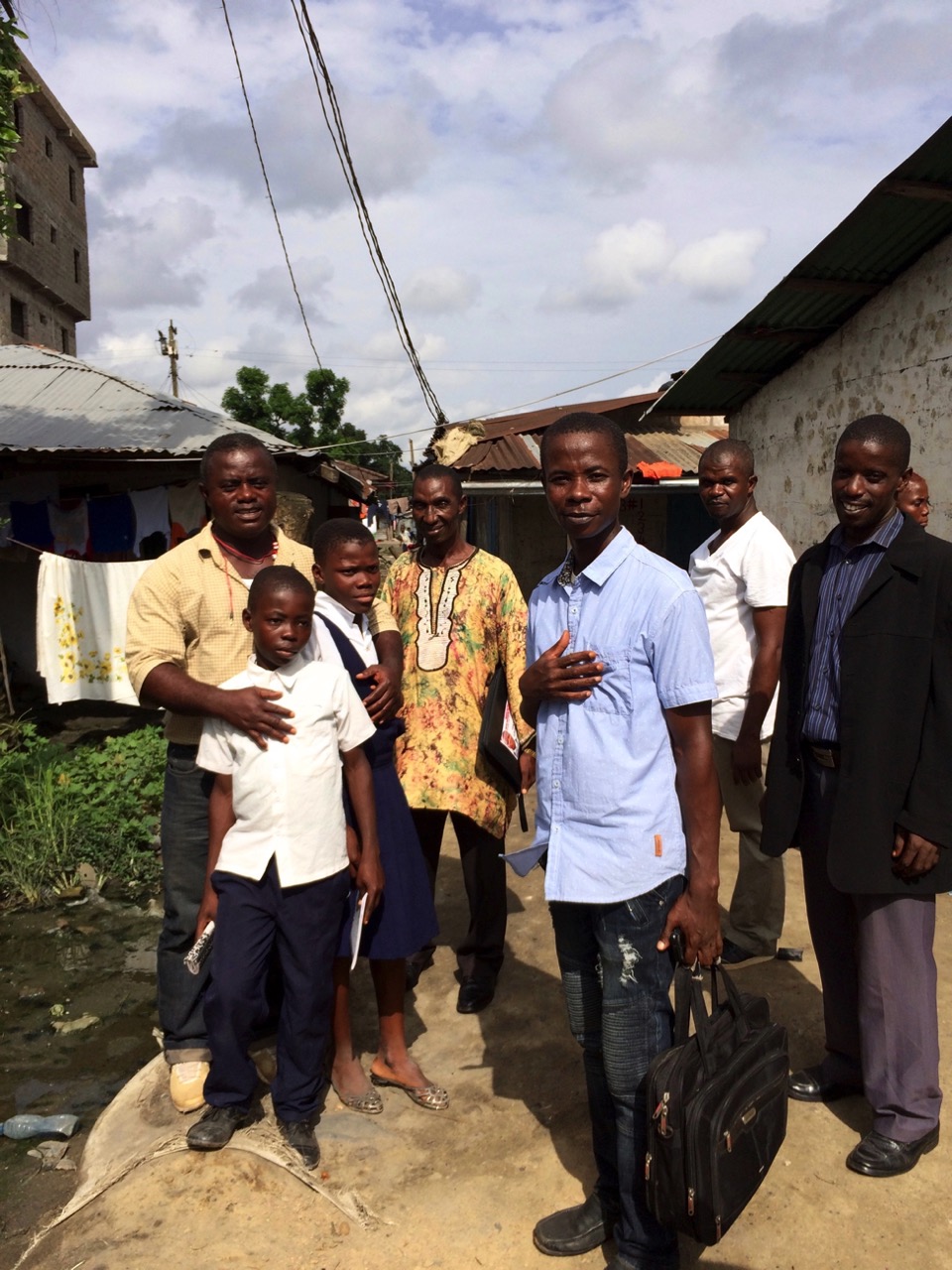NEWS
July 14, 2016

IN BRIEF
By: Beth Goldberg (Summer Resident Fellow at Accountability Lab Liberia) and John Kamma (Founder of Citizens Bureau for Development and Productivity, and Accountapreneur). This blog post is the second in a series about the Community Justice Team in Logan Town, Liberia. Mr. Kamma and his team of mediators face three primary challenges in delivering justice in Liberia: Transportation & Communication – the communities served by the Citizens Bureau are widely dispersed and the mediators have no vehicles. For example, one office of the Bureau serves Logan Town’s 17 distinct communities of over 70,000 residents. This is a tall order, but [...]
SHARE
 By: Beth Goldberg (Summer Resident Fellow at Accountability Lab Liberia) and John Kamma (Founder of Citizens Bureau for Development and Productivity, and Accountapreneur). This blog post is the second in a series about the Community Justice Team in Logan Town, Liberia.
By: Beth Goldberg (Summer Resident Fellow at Accountability Lab Liberia) and John Kamma (Founder of Citizens Bureau for Development and Productivity, and Accountapreneur). This blog post is the second in a series about the Community Justice Team in Logan Town, Liberia.
Mr. Kamma and his team of mediators face three primary challenges in delivering justice in Liberia:
- Transportation & Communication – the communities served by the Citizens Bureau are widely dispersed and the mediators have no vehicles. For example, one office of the Bureau serves Logan Town’s 17 distinct communities of over 70,000 residents. This is a tall order, but the challenge is compounded by the fact that Logan Town has no paved roadways and scant electricity. The mediators conduct outreach on foot and by radio, stopping into their neighbors’ cookshops (small restaurants) and tailoring businesses to remind them of the services provided in the blue room just down the road. While outreach through word of mouth, radio, and town criers has kept the mediators busy, there is not widespread awareness of the Bureau’s services.
- Lack of prosecutorial power – while the Citizens Bureau is seeking greater collaboration with police and courts, it operates informally, and thus lacks the ability to formally prosecute and sentence criminals. Those seeking retribution for wrongs sometimes choose the formal sector over the Citizens Bureau because the mediators can only provide peaceful resolutions, not jail time or punitive actions. The Bureau has tried to respond to this demand for punishment by instituting community payback, similar to a community service sentence whereby the wrongdoer must carry out work on behalf of the community. For community payback to work, however, it requires the cooperation of the court to enforce adherence to the work program, which the mediators lack authority to do.
- Witchcraft – cases of witchcraft are particularly challenging because the claims are not evidence-based. Often, crimes related to witchcraft are taken to court, but the root cause of the dispute – accusations of witchcraft – cannot be addressed in a formal court of law. This is why so many witchcraft cases come to the Citizens Bureau, and the courts have even sent cases to the mediators to resolve. To date, all witchcraft cases have been resolved using religion, which holds strong moral authority in Liberia. “We mediators are god-fearing people” explained Reverend Joseph Mambu, one of the Bureau’s mediators. When prompted about whether religion or rule of law guided the mediators’ decisions when they inevitably conflict, Rockson smiled. “That is simple, then we use wisdom.
The mediators’ wisdom is grounded in a tested process of alternative dispute resolution, and their identity as members of the communities themselves. The mediators work in pairs and begin by establishing ground rules – confidentiality, honesty, and inclusivity of all voices involved – and then they listen, and listen some more. Liberians are avid story tellers so it is especially important that all parties have a chance to share their perspective. The parties then have a chance to ask questions of one another, guided by the mediators.
“We try always to get to the root cause of what actually happened… by hearing all parties’ stories” explained Mr. Kamma. Once the problem is fully understood, the mediators prescribe a solution and follow-up with in-person visits, verifying that the resolution has stuck and all parties are satisfied months later.
Given the heightened tensions around the UNMIL withdrawal and upcoming elections, Liberia is at a critical juncture for maintaining its nascent peace and stability. The mediators of the Citizens Bureau are making an invaluable contribution by settling disputes through non-violent means. This builds the trust, understanding and bottom-up accountability that is critical to stability in Liberia. They are promoting this mentality through outreach campaigns and practical demonstrations of the value of a non-violent approach to conflict resolution. Fortunately, their approach is not only successful, but popular; some residents in the communities who have received the Bureau’s message of non-violence have become peace ambassadors, taking on the challenge of resolving conflicts in their neighborhoods themselves before they escalate to violence.
